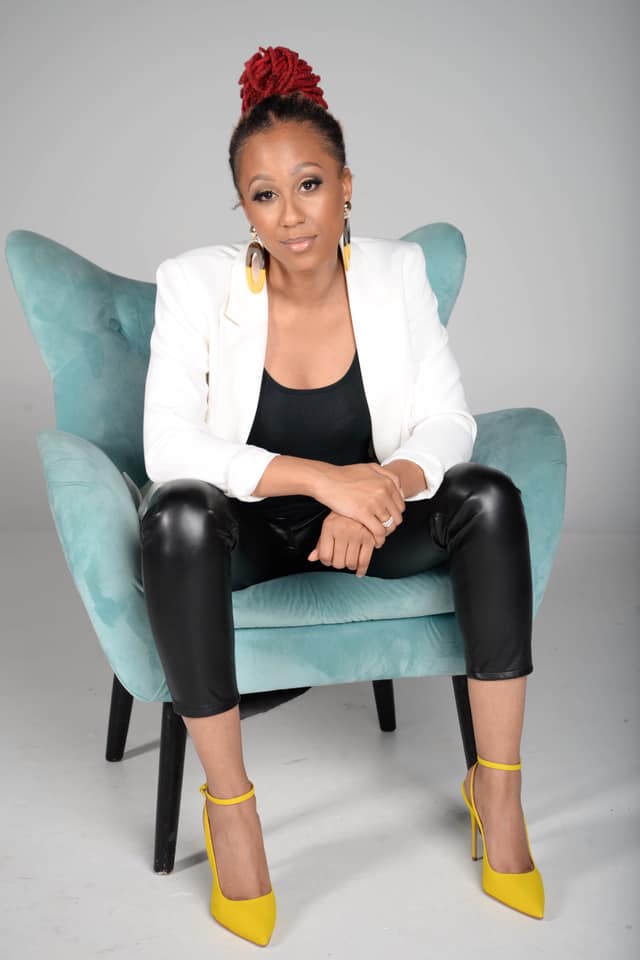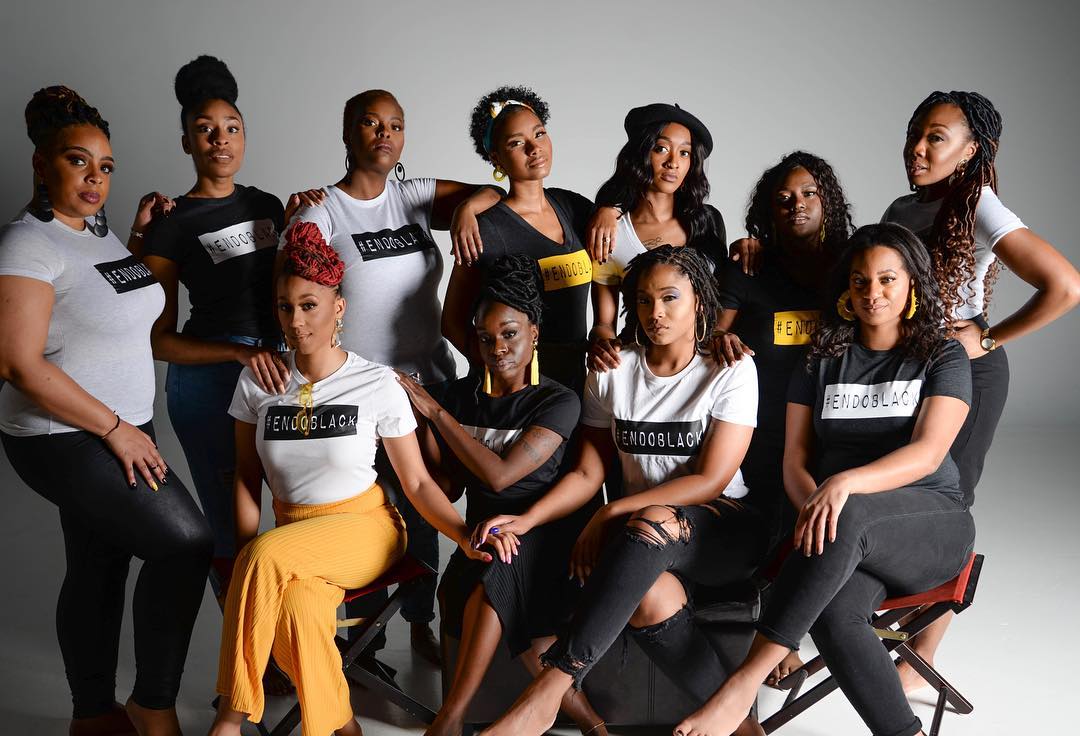
Source: LilyAnnRivers Photography / LilyAnnRivers Photography
When Lauren Kornegay was diagnosed with endometriosis in 2011, she scoured the Internet looking for other women to connect with who were also suffering with the inflammatory condition. Though she was able to find support from online communities of women swapping advice, sharing stories, and offering words of encouragement, she noticed one thing: hardly any of the women were Black.
Affecting approximately 11 percent of women in the U.S., endometriosis is caused when then tissue that lines the uterus grows outside of the actual uterus. Symptoms can include chronic pain in the back and pelvis, painful periods, and even infertility, according to the Office of Women’s Health. Once thought of as a ‘white woman’s disease,’ we’re seeing a gradual increase in Black women coming out to share their stories. Actresses Tia Mowry and Whoopi Goldberg, along with singer Monica are just a few of the celebrities who’ve been candid about their diagnosis. But despite the growing number of celebrities speaking out, the platforms for everyday women of color to share their stories isn’t as prevalent. That’s why Kornegay decided to create Endo Black, a community dedicated to offering support and raising awareness about endometriosis, specifically among Black women.
For Endometriosis Awareness Month, we spoke with Kornegay about her struggles with endometriosis, the biggest misconception about the condition, and how she’s using her platform to increase knowledge about this disorder among Black women.
MadameNoire: You created Endo Black a few years after you were diagnosed. Why did you think it was important to create a community specifically for Black women suffering from endometriosis?
Lauren Kornegay: When I did research after I was diagnosed, I didn’t see anyone of color. As a result, I felt alone going through the process. I had family and friends who tried to support; but they didn’t really understand what I was going through. I created Endo Black to connect with women like me who were going through the same struggles. While it’s good to see women of other races come out and talk about their struggles, it’s still different.
Research suggests that Black women often go undiagnosed or are misdiagnosed when it comes to a lot of conditions, like endometriosis. How were you diagnosed?
I was having sharp pains in my legs and knees. So I started going to a new doctor and was explaining my symptoms to her. She told me that they were not normal. When I kept explaining my pain and symptoms, she told me that she thought I might have endometriosis. So she recommended that I have laparoscopy, which is a surgery used to check for endometriosis. I had the surgery and was diagnosed in 2011.
That’s good that she was able to pinpoint it early. That’s not always the experience for some women.
Right. Because I was going to a family doctor before her and I was never diagnosed; but when I was specific about my pain with her, she was able to help me early on. And that’s why it’s important to be open with your gynecologist and tell him or her everything. From my doctor, I learned that I needed to keep a medical journal and that was helpful. And be very specific about your pains.
Since starting your platform, what’s been something surprising that you’ve learned about endometriosis?
I think learning about some of the different symptoms women have. Some women in the community have said they’ve experienced hair loss, and that was very shocking to me. And learning about the mental side effects of endometriosis. There are a lot of women who are stressed out and and just going through it.
Even for me, it’s hard sometimes because I have my own endometriosis battles and sometimes I struggle and wonder if I should keep Endo Black going; but it’s been worth it.
How has your life changed as a result of the condition?
It’s been hard. I’ve had multiple situations where I had to be hospitalized because of complications associated with endometriosis. Once I had a cyst rupture and I lost about two gallons of blood in my abdomen. And I frequently have sharp pains, mainly in my back and legs, but it comes out of nowhere. You can be having a good day and then the next thing you know you’re in pain, and there is not much that you can do about it.

Source: LilyAnnRivers Photography / LilyAnnRivers Photography
Has changing your diet helped? Do you try to eliminate foods that are considered inflammatory?
I definitely try to stay away from foods that can cause complications. For instance, I don’t eat red meat. I’ve taken away added sugar, and fast food is not in my diet. I also try to limit my coffee intake, even though Starbucks is my friend.
What do you think is one of the biggest misconceptions about endometriosis?
One of the biggest misconceptions is that Black women don’t have endometriosis. I’m still in shock about how many women have been reaching out sharing their stories since I started Endo Black. I’ve had people older and younger than me telling me that they were diagnosed. It’s been very interesting.
You recently asked your community what’s the worst thing they’ve been asked about endometriosis. What do you think is one of the worst things to say to Endo sufferers?
There is so much people shouldn’t say, and I’ve heard a lot of it. I have so many jokes; but I think one of the worst things you can say is that someone is lazy. When Endo flare-ups happen, people really don’t understand how serious they can be. So people should try not to be judgmental.
March is Endometriosis Awareness Month. What do you hope is accomplished during this time?
A lot of women have endometriosis and may not know it. So shedding light on it is very important so that women can get properly diagnosed. I really hope there is more awareness raised for women of color. For instance, what research is being done? And how can we be a part of those discussions?
What’s next for Endo Black?
I want to expand Endo black and host events in major cities and eventually get into research. I’ve had so many people reach out in support and that keeps me going. It’s been good to connect with other women who are going through the same struggles as me.
Endo Black will host their first Endo meet-up in Washington, D.C. on April 27. For more information on upcoming events or to join the community, visit the Instagram and Facebook pages.









